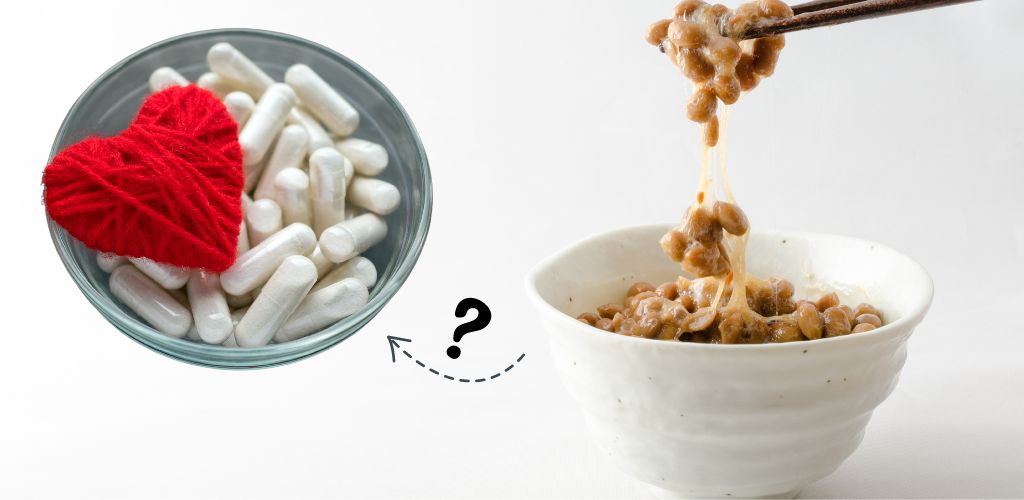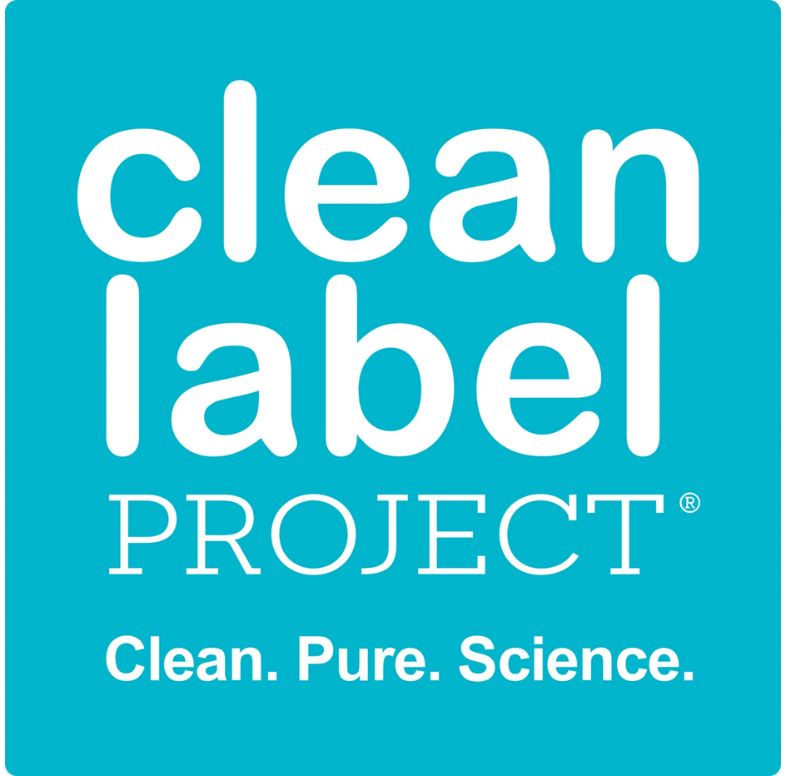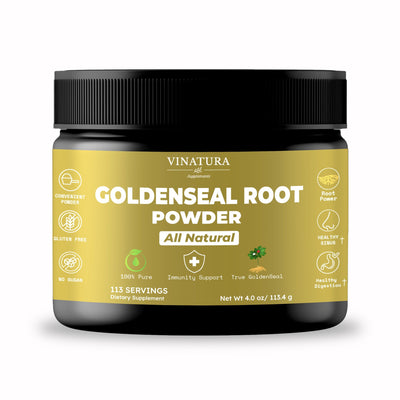
Is Nattokinase a Blood Thinner? Can It Replace Blood Thinners?
Nattokinase is a natural enzyme found in natto, a traditional Japanese food made from fermented soybeans. It has attracted attention for its potential to thin the blood and improve cardiovascular health.
Many people who prefer natural remedies over synthetic drugs have opted for this beneficial natural solution.
However, can Nattokinase truly be a blood thinner and replace other types of blood thinners? Let's delve into this issue further in the following article.
Before exploring further, please read the disclaimer located at the end of this webpage.
Key Takeaways
- Nattokinase is a traditional Japanese enzyme extracted from fermented soybeans. It is known for its minimal side effects and potential to naturally improve blood circulation.
- It is not considered a medication but rather sold as a dietary supplement.
- Nattokinase is believed to have the ability to break down blood clots by dissolving fibrin, thereby enhancing blood flow and reducing the risk of clot formation.
- The specific time it takes for Nattokinase to dissolve blood clots can vary depending on various factors.
- While Nattokinase has the potential to thin the blood, using it as a complete replacement for prescription blood thinners recommended by a doctor requires careful consideration.
What Is Blood Thinner?

Blood thinners, also known as anticoagulants, are a group of medications used to prevent the formation of blood clots or reduce blood viscosity, thereby decreasing the risk of clot formation and enhancing blood circulation in the body [1].
These medications are commonly used to treat conditions such as stroke, blood clots in the arteries, and thrombosis. Treating blood clots is crucial, as clots in the blood vessels and heart can lead to heart attacks, stroke, and blockages.
Is Nattokinase a Blood Thinner?

Natto is a traditional Japanese fermented soybean product containing Nattokinase, a blood-clot-dissolving protein produced during fermentation.
Extensive research has been conducted on the benefits of Nattokinase, and it has been recognized for its ability to break down blood clots [2].
Both animal and human trials have demonstrated that Nattokinase can improve blood circulation and reduce the risk of various heart diseases without causing adverse effects.
However, natto's unfavorable odor and texture have limited its popularity and use.
Gradually, Nattokinase has been sold as a dietary supplement and consumed widely in many countries worldwide [2].
Therefore, Nattokinase is not a blood thinner like warfarin, but its properties allow it to function as one.
How Does Nattokinase Work as a Blood Thinner?
Fibrin and Plasmin Substrate Hydrolysis
Nattokinase can break down blood clots by directly acting on fibrin and the plasmin substrate, helping to dissolve blood clots [2].
Fibrin is an essential protein in blood clot formation, and the plasmin substrate is an enzyme capable of fibrinolysis.
When nattokinase comes into contact with fibrin, it stimulates the activity of the plasmin substrate, leading to the breakdown of blood clots and preventing their formation.
Conversion of Prourokinase to Urokinase (uPA)
Nattokinase can convert urokinase into urokinase, an inactive form of the plasminogen-degrading enzyme. This enzyme actively breaks down blood clots [2]. The conversion of urokinase to urokinase is an important step in forming urokinase, a key enzyme in clot dissolution.
PAI-1 Degradation
Nattokinase also can degrade plasminogen activator inhibitor-1 (PAI-1). This protein inhibits the activity of urokinase, helping to enhance the activity of urokinase [2].
Enhancement of Tissue Plasminogen Activator (t-PA) Levels
Nattokinase also enhances the levels of tissue plasminogen activator, another enzyme capable of breaking down blood clots, to support fibrinolytic activity [2].
As the level of t-PA increases, the conversion from plasminogen to plasmin also increases, leading to enhanced fibrinolytic activity.
This helps to break down blood clots, reduce the risk of cardiovascular issues and strokes, and improve blood circulation.
What are the Benefits of Nattokinase as a Blood Thinner?

Many studies have shown the potential of Nattokinase in improving blood circulation and reducing the risk of blood clot formation, which may help reduce the risk of cardiovascular diseases.
Here are the benefits of Nattokinase when used as a blood thinner [2]:
- Circulatory Support: Nattokinase helps thin the blood and dissolve blood clots, providing support to the circulatory system.
- Clot Prevention: Nattokinase can break down blood clots and fibrin, reducing the risk of clot-related issues, including those related to heart disease and stroke.
- Effectiveness and Safety: Nattokinase is effective in breaking down blood clots and does not cause significant adverse effects. Nattokinase has also been reported to not cause serious side effects after use.
- Anti-inflammatory and Antioxidant: Nattokinase can inhibit inflammation and prevent the formation of blood clots due to inflammation and oxidative damage in the blood vessels.
- Reduced Risk of Heart Disease: A human study has shown that using Nattokinase may reduce risk factors for heart disease without causing adverse effects.
- Absorption and Transportation: Nattokinase can withstand the stomach's acidic environment and is efficiently absorbed from the digestive tract into the circulatory system, providing the benefit of breaking down blood clots and fibrin.
- Commercial Product and Clinical Potential: Nattokinase is being commercialized and is widely used as a dietary supplement in many countries. There are many top-rated Nattokinase supplements on the market today. The potential of Nattokinase is being evaluated in clinical trials, including reducing the risk of atherothrombotic events and slowing the progression of atherosclerosis.
Pros and Cons of Nattokinase Compare With Blood Thinner Drug
Using nattokinase and blood thinners, both have their advantages. Here are some comparisons of the pros and cons of both:
|
Nattokinase |
Blood Thinners |
|
|
Origin |
Extracted from natural food source (natto) |
Often synthetic products |
|
Side Effects |
Typically fewer side effects |
Can cause various side effects |
|
Effectiveness |
Less certainty with clinical research to demonstrate effectiveness compared to some traditional blood thinners |
Many clinical studies support effectiveness |
|
Cardiovascular |
Support Improves overall cardiovascular health, reduces risk of blood clots and stroke, can be integrated into daily diet (consuming natto can provide supplementary Nattokinase enzyme) |
Integrated into cardiovascular health treatment protocols |
|
Dosage Control |
No specific dosage, often adjusted through dietary intake or use of nattokinase supplements |
Specific dosage, easily controlled through medication intake |
|
Clinical |
Support Limited clinical data |
Abundant clinical studies support |
Pros and cons of Nattokinase and Blood Thinner table
You may already have opinions on whether to use Nattokinase or blood thinners.
However, I also want to emphasize that the choice between using Nattokinase and blood thinners should be based on each individual's specific health condition and the advice of a doctor. You may need an expert to help you make that decision.
How Long Will Nattokinase Dissolve Blood Clot Last?
The specific time for Nattokinase to dissolve blood clots may vary depending on several factors, such as dosage, the user's health condition, and the nature of the blood clot.
A study has shown that mice using Nattokinase may dissolve blood clots within 240 minutes [3].
While some online anecdotes claim blood clot dissolution after a day of using Nattokinase, there isn't sufficient evidence to verify this.
Therefore, while the efficacy of Nattokinase is undeniable, determining the exact time it takes for Nattokinase to dissolve blood clots will require further analysis through additional research.
Can Nattokinase Replace Blood Thinners?
Although Nattokinase exhibits anticoagulant properties, it is not a conventional blood thinner like warfarin or heparin. Instead, it promotes healthy blood circulation and prevents abnormal blood clot formation.
A healthcare professional should guide the dosage and use of Nattokinase, especially if you are already taking prescription blood thinners or have bleeding issues.
Nattokinase may not be suitable for everyone, particularly those with specific medical conditions or taking other medications.
Read more: Nattokinase Drug Interactions & Nattokinase Contraindications
Things Need to Consider When Taking Nattokinase As a Blood Thinner
While Nattokinase generally has fewer side effects, they can still occur in some cases. However, many clinical studies have not reported any adverse effects associated with Nattokinase use [4].
Common side effects may include symptoms such as blood thinning, excessively low blood pressure, or severe bleeding or bruising. Nattokinase may lower blood pressure, and sometimes lead to symptoms like dizziness or fainting [5].
Moreover, although rare, serious allergic reactions can also occur, including difficulty breathing, itching, and rash. If you experience any of these symptoms, seek medical attention promptly for appropriate treatment.
Conclusion
Although Nattokinase holds the potential for blood thinning and improving heart health, using it as a complete substitute for prescription blood thinners should be carefully considered.
Discussing with a doctor and following their guidance is crucial to ensure safety and effectiveness when using Nattokinase. Protecting heart health is essential for our overall well-being, so let's pay attention to and care for our bodies.
Related Articles:
- Benefits Of Nattokinase Supplements: Side Effects & Usage
- Does Nattokinase Benefit for Skin Health?
- Is Nattokinase good for kidneys? Helpful or harmful?
References
- [1] Blood Thinners. Medlineplus.gov. Published 2022. Accessed May 8, 2024. https://medlineplus.gov/bloodthinners.html
- [2] Weng Y, Yao J, Sparks S, Kevin Yueju Wang. Nattokinase: An Oral Antithrombotic Agent for the Prevention of Cardiovascular Disease. International journal of molecular sciences. 2017;18(3):523-523. doi:https://doi.org/10.3390/ijms18030523
- [3] Feng R, Li J, Chen J, et al. Preparation and toxicity evaluation of a novel nattokinase-tauroursodeoxycholate complex. Asian journal of pharmaceutical sciences. 2018;13(2):173-182. doi:https://doi.org/10.1016/j.ajps.2017.11.001
- [4] Weng Y, Yao J, Sparks S, Kevin Yueju Wang. Nattokinase: An Oral Antithrombotic Agent for the Prevention of Cardiovascular Disease. International journal of molecular sciences. 2017;18(3):523-523. doi:https://doi.org/10.3390/ijms18030523
- [5] Jensen GS, Lenninger M, Ero MP, Benson KF. Consumption of nattokinase is associated with reduced blood pressure and von Willebrand factor, a cardiovascular risk marker: results from a randomized, double-blind, placebo-controlled, multicenter North American clinical trial. Integrated blood pressure control. 2016;Volume 9:95-104. doi:https://doi.org/10.2147/ibpc.s99553
Author

Product Disclaimer
Including an ingredient or study does not evaluate, endorse, or recommend any Vinatura product or any third-party product. Some ingredients discussed may not be used in any Vinatura product.
The content of the articles has not been evaluated by the Food and Drug Administration (FDA) and is not intended to promote or endorse any specific product. Any products sold on this website are not intended to diagnose, treat, cure, or prevent any disease.
Opinions and Endorsements
Any claims, statements, or opinions expressed in the articles are those of the author(s) and do not necessarily reflect the views or opinions of the manufacturers of the dietary supplement products. The products sold on this website are separate from the content of the articles and are not directly endorsed or associated with the information presented here.
Liability Disclaimer
The author(s) of the articles, website, and manufacturers of the dietary supplement products do not assume any liability for any potential consequences arising from the use of the information provided in the articles. Ingredient effects, dosages, and safety vary by individual, formulation, and context; some ingredients interact with medications or may be unsuitable during pregnancy or lactation. It is recommended that individuals consult with a qualified healthcare professional before making any dietary or lifestyle changes, including the use of dietary supplements.
Product Usage
Please refer to the product labels and packaging for specific usage instructions and guidelines for the dietary supplement products sold on this website.
Customer Support
For any concerns or questions regarding the dietary supplement products, please contact our customer support team, who will be more than happy to assist you.






Leave a Comment
Be the first to comment.
What do you think?